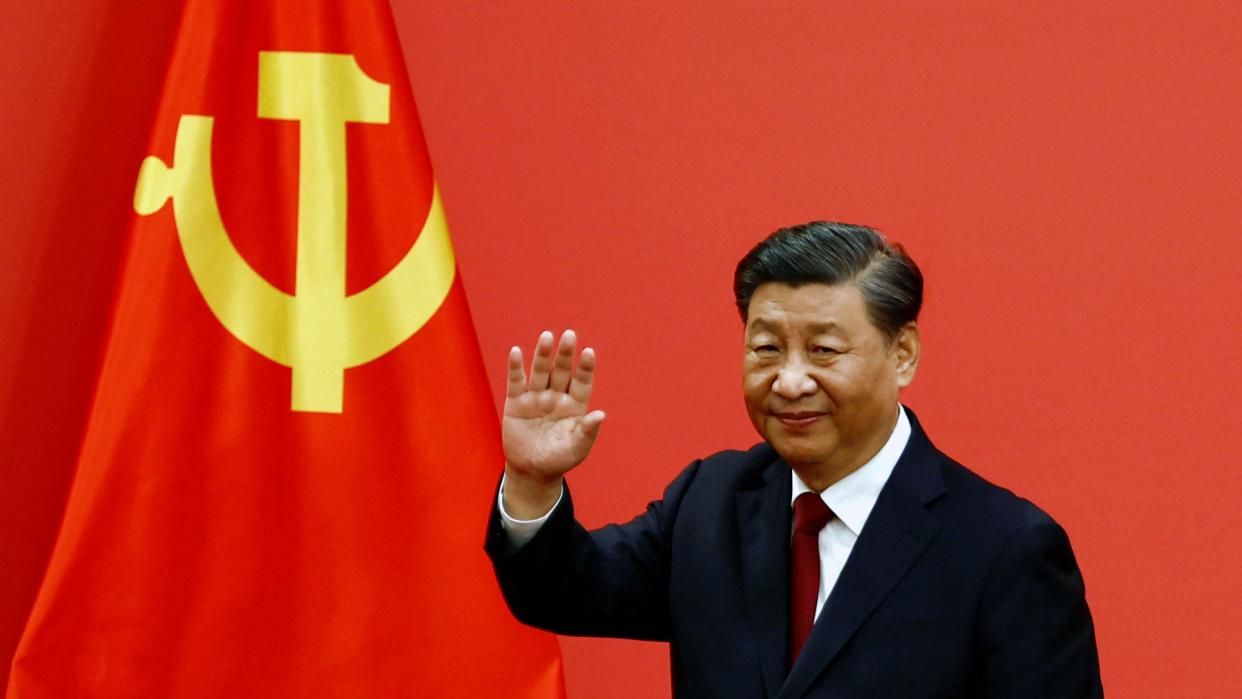Calculated continuity: Xi’s Moscow visit and future of global order

By DR. Imran Khalid
As Chinese President Xi Jinping prepares for a high-profile visit to Moscow this week - coinciding with the 80th anniversary of the Soviet victory over Nazi Germany - the timing and symbolism are too important to overlook. Amid an intensifying geopolitical rivalry and an ongoing war in Ukraine, this visit encapsulates not only a moment of remembrance but also a carefully choreographed performance of strategic alignment.
Xi’s meeting with Vladimir Putin will undoubtedly be watched closely in Washington and Brussels. Western analysts often paint China’s position on the Ukraine war as ambiguous, or even complicit. Ukrainian President Volodymyr Zelenskyy recently accused Beijing of supplying military components to Moscow - a charge Beijing firmly denies. The China-Russia relationship is not a wartime alliance akin to NATO but a civilizational partnership with deep strategic roots.
Since their formal declaration of a strategic partnership in 1996 and the signing of the Treaty on Good-Neighbourliness and Friendly Cooperation in 2001, the two countries have synchronised their policies across key global institutions. From the UN Security Council to the Shanghai Cooperation Organisation (SCO) and BRICS, Beijing and Moscow have steadily cultivated a parallel order - one that seeks to moderate, and in some ways replace, the Western-led global system.
Trade ties between the two are now stronger than ever. In 2024, bilateral trade reached an all-time high of $245 billion. Russia provides energy - crude oil, natural gas, and even nuclear fuel - while China supplies technology, machinery, and consumer goods. This economic interdependence has allowed Russia to weather Western sanctions with surprising resilience and has given China increased access to Eurasian resources. President Putin has even called the relationship “truly strategic in nature, deep-seated,” and not without cause.
Yet this alliance is not without its limits. China has shown no interest in directly supporting Russia’s military offensive in Ukraine. Instead, it continues to advocate for diplomacy, a ceasefire, and what it vaguely calls a "political solution." When Moscow proposed a brief three-day ceasefire for May 9 - Russia’s annual Victory Day celebration - Kyiv countered with a demand for a 30-day truce. While the exchange yielded no tangible progress, Beijing’s response was instructive: it did not endorse either position but instead underscored its commitment to peace and dialogue.
This is classic Chinese diplomacy - noncommittal in rhetoric, pragmatic in practice, and always aimed at long-term interests. Much has been made of a possible "axis" between China and Russia, fueled by American fears that a new Cold War is forming - not just with Moscow but with Beijing too. This line of thinking, however, overlooks the fundamental asymmetry in the West’s own relationships. The two leaders have met over 40 times, a frequency that speaks volumes about their personal rapport and mutual trust.
What Washington appears to hope for - a weakening of Sino-Russian ties in exchange for limited détente with Moscow - is a diplomatic illusion. Russia may entertain dialogues with the U.S. on Ukraine, as it reportedly did in Riyadh earlier this year, but it is unlikely to jeopardize its growing partnership with China for short-term concessions. The logic is simple: China offers Russia a long-term vision of economic and geopolitical stability that the West, consumed with punitive sanctions and diplomatic isolation, cannot match.
For China, the Ukraine war is not merely a regional crisis but a litmus test for global governance. Beijing sees the conflict as a symptom of an outdated international order dominated by a single pole - the United States. Its strategic response has been to amplify calls for a multipolar world, one where the Global South, including powers like Brazil, India, and South Africa, have a more decisive say in international affairs.
It is no coincidence that this year also marks the 80th anniversary of the founding of the United Nations. As two of its founding members and permanent Security Council players, China and Russia are asserting their joint responsibility to safeguard the international system, albeit on their own terms.
If one were to look beyond the headlines and polemics, China’s role in the Ukraine conflict may be more constructive than confrontational. Beijing has not stoked the flames of war, nor has it sought to isolate Ukraine diplomatically. Instead, it is using its leverage with Moscow to stabilise, rather than escalate, the situation. This is not altruism - it is strategic prudence. A protracted war in Eastern Europe undermines China’s Belt and Road ambitions and adds volatility to global markets, especially energy and food, two areas where China has vital interests.
As the Ukraine conflict grinds on, China will continue to walk this delicate line. It will not abandon Russia, nor will it fully endorse its war. Instead, it will act as a geopolitical stabiliser, framing itself as a responsible power that resists the binaries of Cold War thinking. And in doing so, China may be telling the world a quiet but powerful message: that in an era of chaos, it prefers calculated continuity. Not because it agrees with everything its partners do, but because it knows that only by shaping the system from within can it avoid being shaped by others.
Here we are to serve you with news right now. It does not cost much, but worth your attention.
Choose to support open, independent, quality journalism and subscribe on a monthly basis.
By subscribing to our online newspaper, you can have full digital access to all news, analysis, and much more.
You can also follow AzerNEWS on Twitter @AzerNewsAz or Facebook @AzerNewsNewspaper
Thank you!
